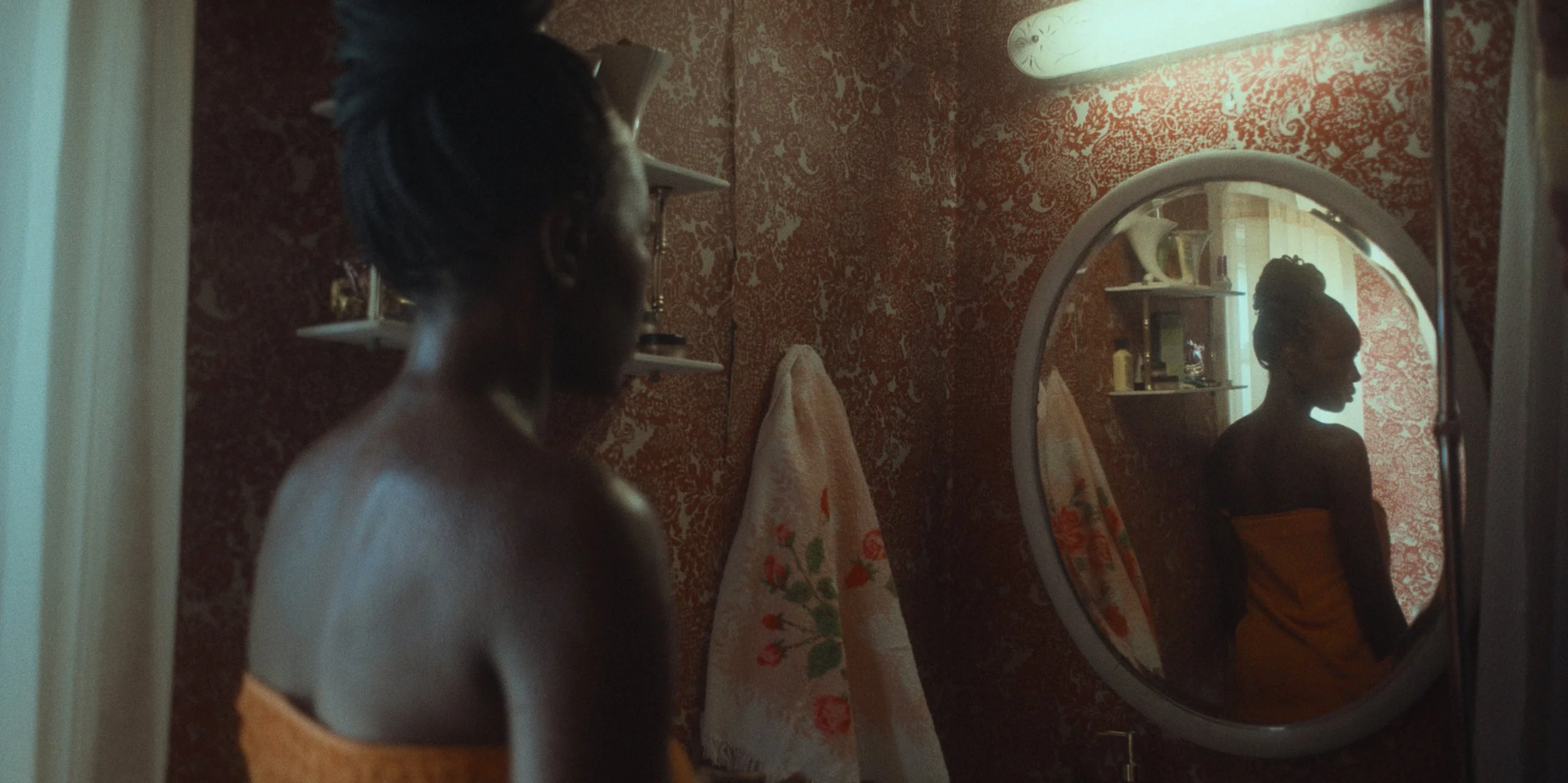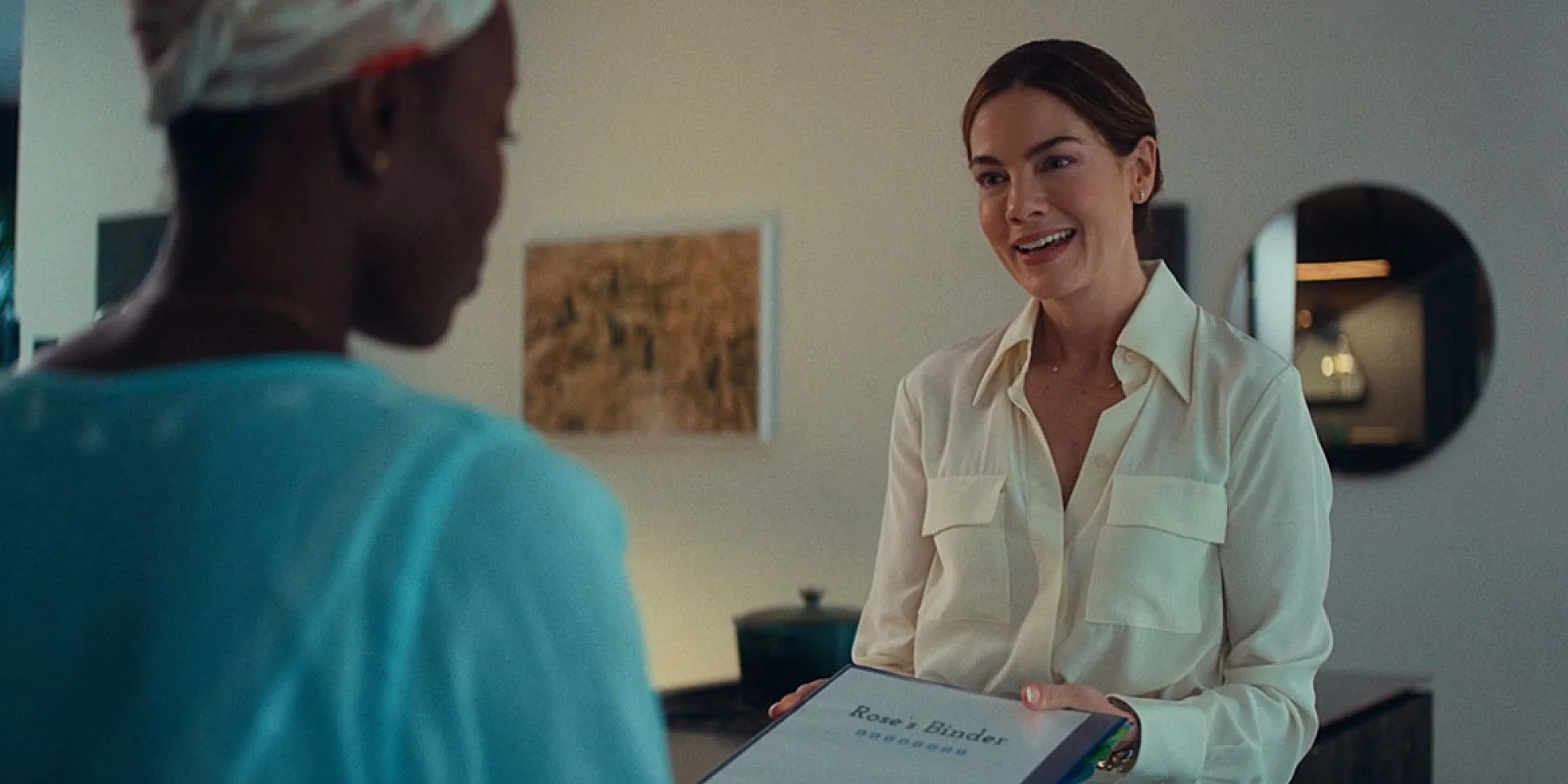Deliberate Horror Drama Nanny (2022) Uncovers Shocking Truths
Originally published February 16, 2023
Title: Nanny
First Non-Festival Release: November 23, 2022 (Limited Theatrical Release,)
Director: Nikatu Jusu
Writer: Nikatu Jusu
Runtime: 99 Minutes
Starring: Anna Diop, Michelle Monaghan, Sinqua Walls
Where to Watch: Check out where to find it here
Aisha (Anna Diop) takes on a new position nannying for a wealthy couple Amy (Michelle Monaghan) and Adam (Morgan Spector). Her goal is to save up enough money to send her son Lamine (Jahleel Kamara) from Senegal to New York City. The longer she works with the couple, however, she finds herself haunted by a series of escalating visions. She struggles to hold onto her sanity while contending with the material issues of the family she works for.
A confident exploration of racism and trauma, Nanny is an understated and unsettling approach to horror.
Taking a more abstract approach to its subject matter, Nanny refuses to hold the hand of its audience. From the beginning, viewers are thrown into Aisha’s world and understand a fraction of the daily obstacles she must overcome to thrive in New York City. The act of landing a job as well-paying as hers gives Aisha the confidence to finally bring her son to America. She doesn’t realize how this job will not only complicate these matters but twist them into something horrible. Nikyatu Jusu painstakingly plants clues throughout Nanny to reveal the tragedy behind it.
Aisha’s story is compelling because of the trials she faces to simply have her basic needs met. Throughout Nanny, Lamine comes first. This is apparent in her reluctance to socialize or date as well as her calculated approach to working for a callous white family. Burdened by their inattention to her compensation and forced to reorient herself constantly at work to meet their bizarre needs, Aisha finds herself playing an unwanted role in their family. She must raise their neglected child while Aisha cannot take care of her own as she would want. The more that she shoulders the burdens of their turmoil and ignorance, the more she loses of herself as a mother and as a person.
The racism she is subjected to takes on a more insidious form than more overt depictions. Subtle reminders of Aisha’s rocky position pervade the film. Amy looks down on Aisha’s cooking, uses her as an unwilling therapist to discuss her work and marriage issues, and reminds her that other nannies talk about how they take care of the children in their charge. Adam thrusts himself onto her in a moment of vulnerability and is dejected when Aisha rejects him. In every interaction, Aisha must carefully choose her words and monitor her tone to not risk angering them. Their treatment of Aisha is juxtaposed with the ways they present to others, notably Adam with his revolutionary photography and Amy with her fake feminism. Their behaviors are meant to be as chilling as the specter that haunts Aisha.
Even in their praises of Aisha, Amy and Adam find ways to undercut her. Adam jests that she won’t be with them long as she is clearly overqualified for the position. While praising Aisha’s intellect is fair, it’s telling what Adam thinks of other nannies who don’t have her education while also showing how dire her situation is to accept that sort of role. This all comes together with the issue of pay. Aisha doesn’t ask for much. She only wants what she is entitled to: the appropriate compensation for hours worked. The fact that it takes her following up with Adam and Amy in the form of written documentation, pleas at unnecessary lunches, and gotcha cards when either parent gets too snippy about Aisha’s performance. The fact that they never consider Aisha and her needs speaks volumes and makes the ensuing tragedy more biting.
Jusu’s strength in writing is mirrored in her confident direction. Nanny looks stunning for such a grounded feature. Since most of its story plays out in the strict confines of New York City apartment living, Jusu gets to let her creativity seep through whenever she allows the supernatural to bend reality. The motif of water seeps into every scene, drowning the audience in the imagery that simultaneously haunts and warns Aisha.
Despite all these strings tying everything together, Nanny feels underwhelming in the end. Almost every moment where Aisha experiences the chilling terror in that apartment complex, is born from a nightmare or hallucination. This doesn’t quell the real-life horror that she experiences when she learns why she is being haunted nor does it take away from the slurry of microaggressions and slights she is subjected to by her employers. All of this stems from Mami Wata and her desire to warn Aisha. Narratively this is not only sound but ties everything together in a way that paints Aisha’s pursuit of the American Dream as even more tragic. It certainly leans heavier into its dramatic elements than its horror in its finale, which can be difficult for some viewers to appreciate.
Incredible direction and impressive character work are enough to make a solid horror drama in Nanny. Beautifully shot and arranged, there is an ever-present haunting aspect to Nanny that gets more insidious as it reaches its heartbreaking conclusion. The tragedy doesn’t quite mix well with the horror in a visceral sense, but Jusu’s commitment to storytelling is unparalleled. Easily one of the most interesting takes on racial horrors in the last few years, Nanny unflinchingly undercuts the myth of the American dream.
Overall Score? 6/10


